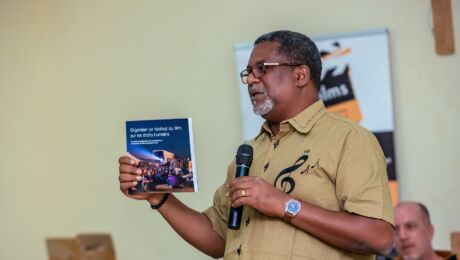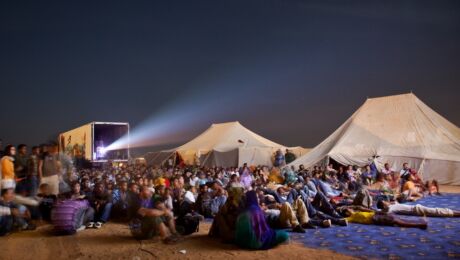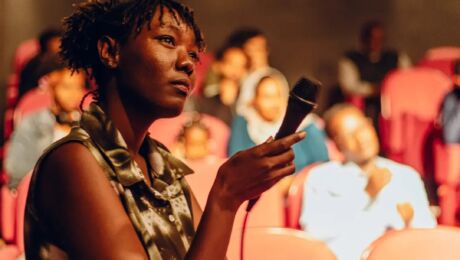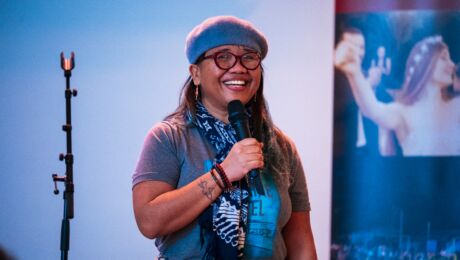Introducing Our 2025 Grant Recipients
Our grant programme is proud to support a dynamic and diverse lineup of film festivals and initiatives this year, each harnessing the power of cinema to spark dialogue, inspire change, and amplify marginalised voices across the globe. From solar-powered mobile screenings in Zimbabwean communities to a Queer Film Festival honoring LGBTQIA+ stories in Nepal’s capital, these projects showcase the vital role cinema can play in fostering social justice and community empowerment. 16 July, 2025
To promote the screenings of human rights cinema worldwide, Movies that Matter offers grants to human rights film events in Africa, Asia, Latin America, the Middle East and Eastern Europe, especially in countries with limited resources and where freedom of press is at stake. These events can take various forms, such as human rights film festivals, LGBTQIA+ film festivals and mobile cinema projects.
Since 2007, we supported over 375 human rights film events in more than 85 different countries for a grant total of over 2.4 million euros. These projects combined reached more than 3.6 million (online) visitors.
Discover more about all 10 incredible initiatives from this year’s application round below.
-
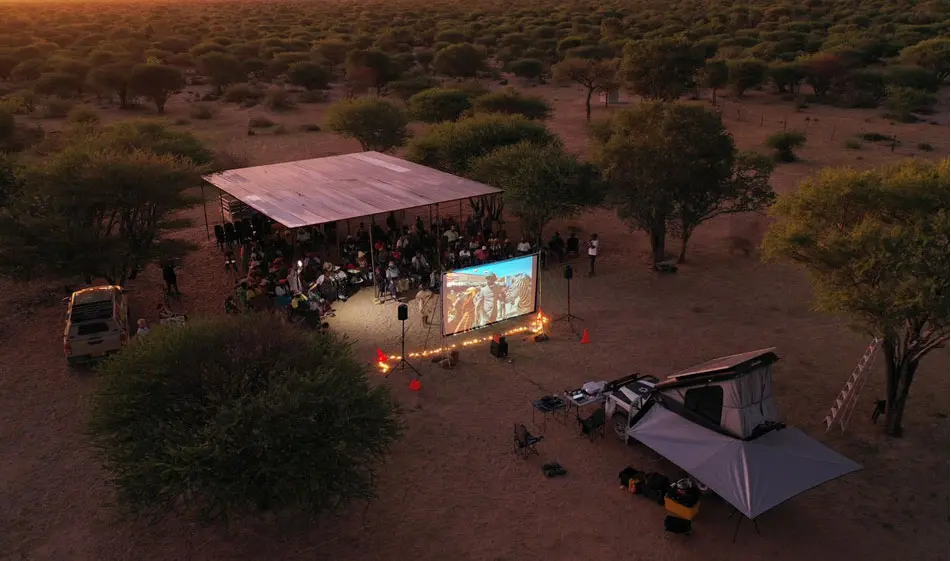
Dialogue in Motion: Mobile Cinema for Peace and Inclusion in Southern Zimbabwe
Zimbabwe | June - October 2025
A four-month mobile cinema and dialogue initiative led by Sunshine Cinema, a Southern Africa-based non-profit that harnesses solar-powered mobile cinema to drive social change. The project will take place in Gwanda, Lupane, and Bulawayo, with a total of 18 community screenings. Each screening will be followed by a #SparkConversation dialogue session, facilitated by trained female Sunbox Ambassadors and local journalists. The initiative is expected to draw a total of approximately 900 visitors.
-
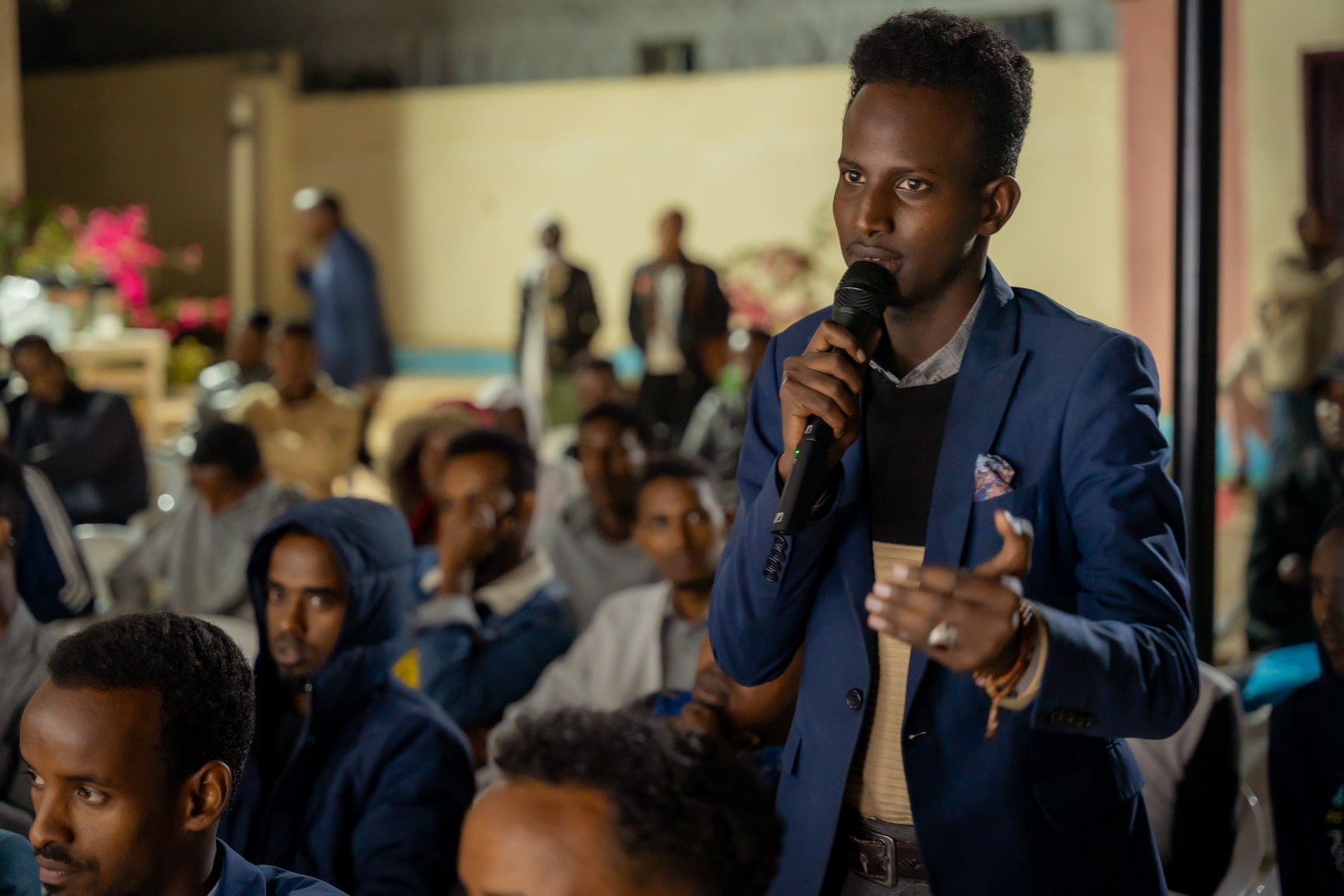
Fankeenna Film Fest
Hargeisa, Somaliland | 4 - 12 September 2025
The second edition of the Fankeenna Film Fest in Somaliland is set to take place in September. The inaugural edition, held over six months with one weekend of screenings each month, served as a pilot to gauge community interest in film and festival culture. This year’s edition builds on that foundation, presenting a curated selection of films that explore a wide range of social themes. Screenings will be followed by discussions and workshops designed to deepen engagement with the topics. The festival primarily targets youth, aiming to empower young people through film and dialogue, encouraging them to become agents of change within their communities. The festival is anticipated to attract around 5,000 visitors in total.
-
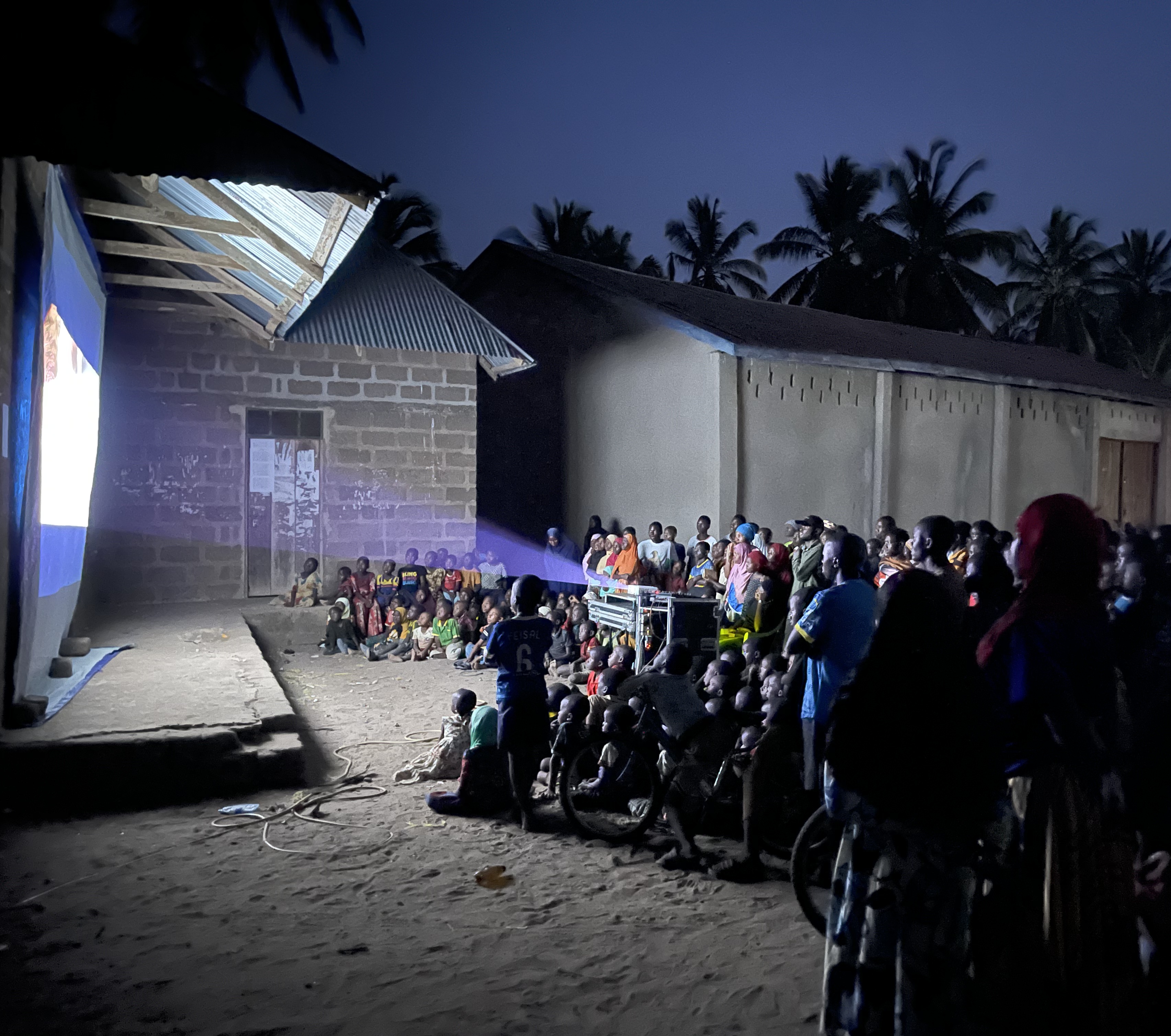
Sauti Zetu Film Festival
Tanzania | 9 - 14 September 2025
The third edition of the Sauti Zetu Film Festival in Tanzania marks an exciting expansion, with events taking place not only in Dar es Salaam, home to the first two editions, but also for the first time in Arusha, Morogoro, and Pwani. In addition to film screenings, the festival will host community discussions and a bootcamp for emerging filmmakers. The festival is anticipated to attract around 2,400 visitors in total. This year’s themes center on Civic Engagement and Democratic Participation as well as Climate Justice and Environmental Resilience. A key focus is reaching new audiences, including Indigenous communities such as the Maasai. Most screenings will be held in open-air, community-oriented spaces to encourage accessibility and dialogue.
-
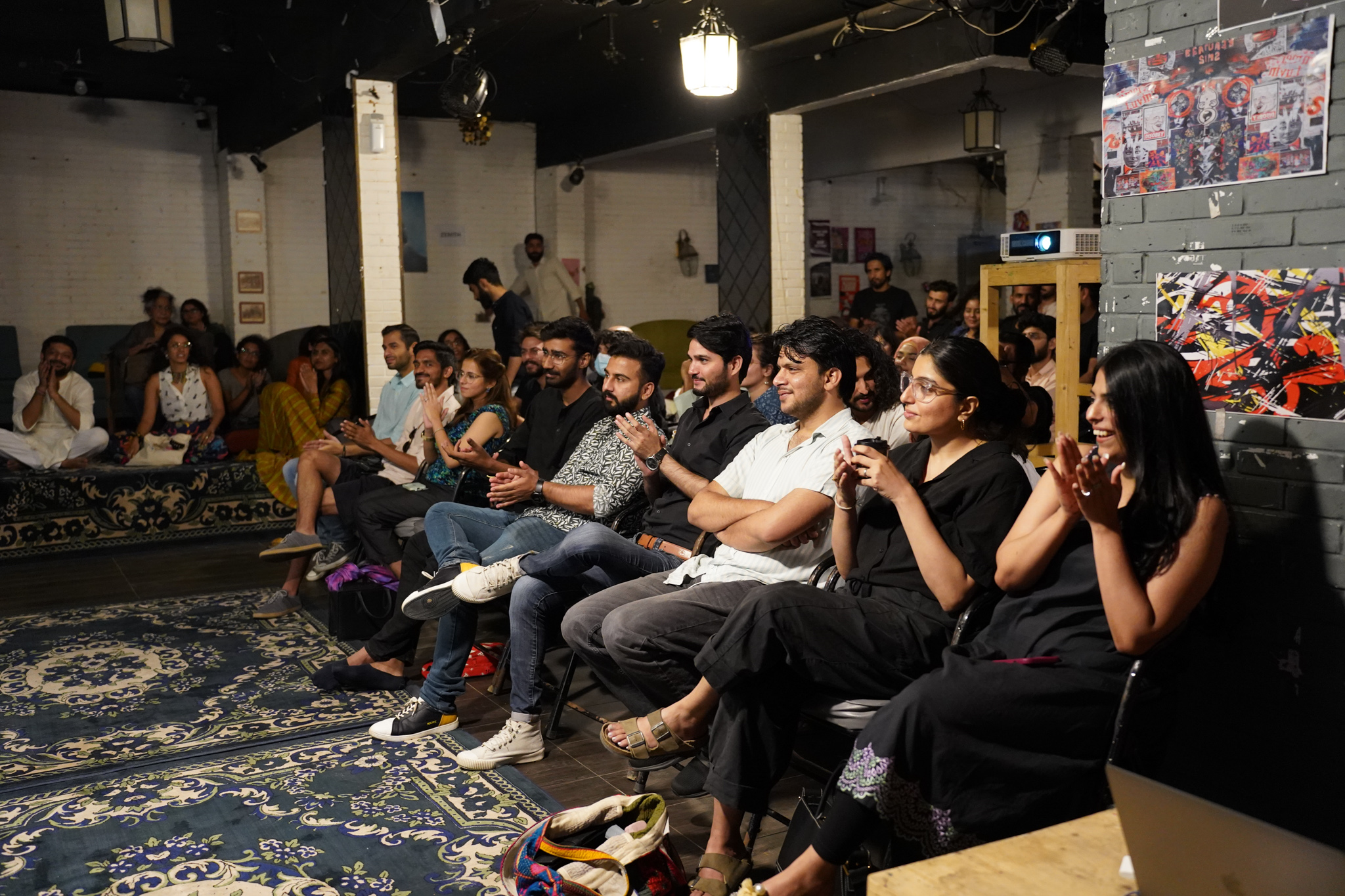
Chalta Phirta Documentary Festival
Pakistan | 20 September - 18 October 2025
The 3rd edition of the Chalta Phirta Documentary Festival will tour five cities (Karachi, Lahore, Islamabad, Quetta, and Gujranwala) over the course of five weekends, showcasing at least six feature documentaries and ten short films. Each screening will be followed by a Q&A session with filmmakers and expert panelists to deepen engagement with the film’s themes. With the support of an impact grant, this year’s edition places greater emphasis on reaching diverse audiences, ensuring sustainability, providing fair compensation for staff, hosting a filmmaker meet-up, and introducing ticketed entry for the first time. The festival is expected to draw a total of approximately 1,000 visitors.
-
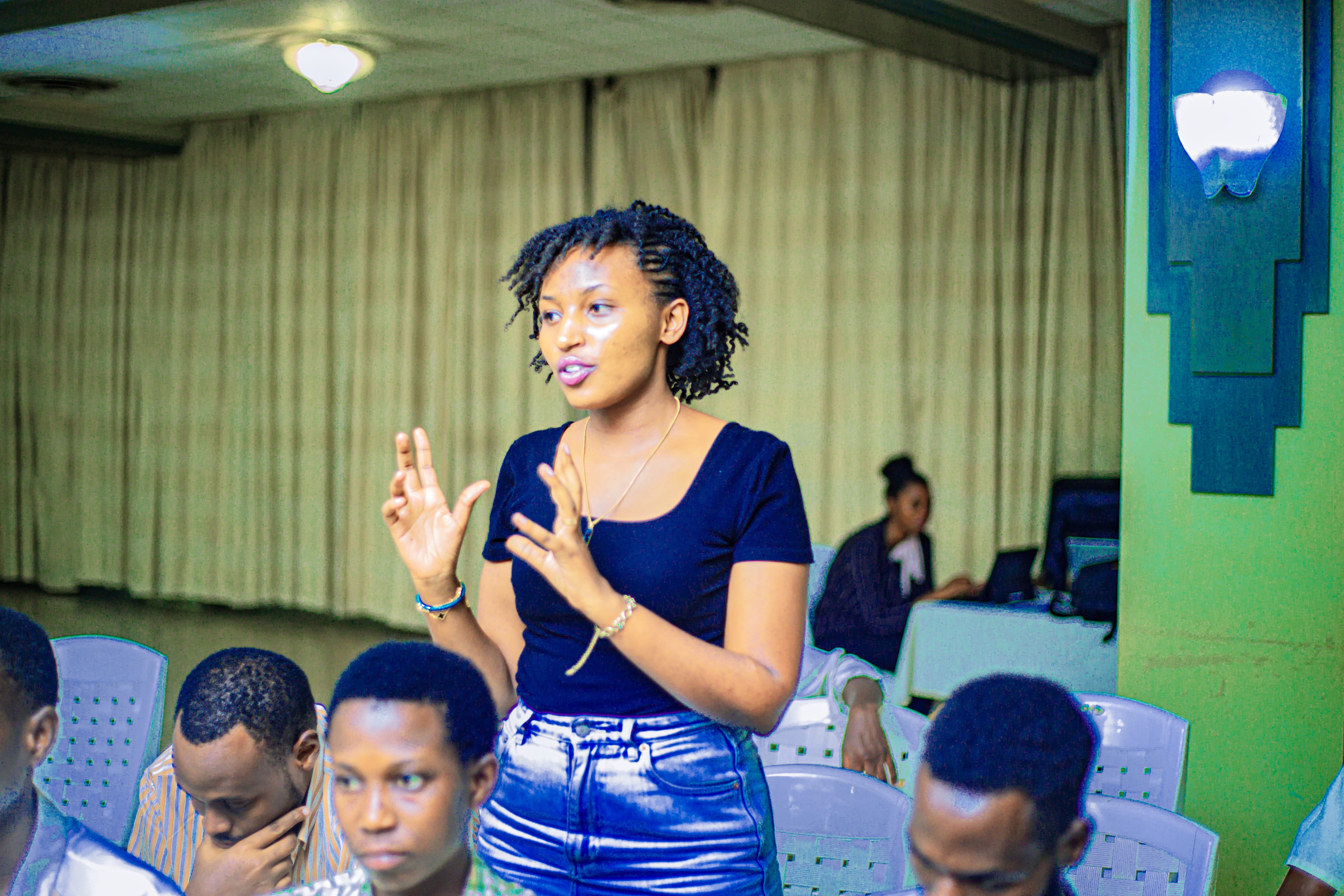
IMPAKT FILM FESTIVAL
Gitega, Burundi | 22 - 26 September 2025
The third edition of the IMPAKT Film Festival marks a new chapter as the event moves from Bujumbura to Burundi’s political capital, Gitega, after two successful years. This relocation aims to engage new audiences, particularly youth, community leaders, and policymakers. The festival will feature seven film screenings, including short fiction films that explore themes such as gender equality, environmental justice, youth empowerment, and access to healthcare. Each screening will be followed by interactive discussions or Q&A sessions to encourage deeper dialogue around the issues presented. The festival is expected to draw a total of approximately 4,500 visitors.
-
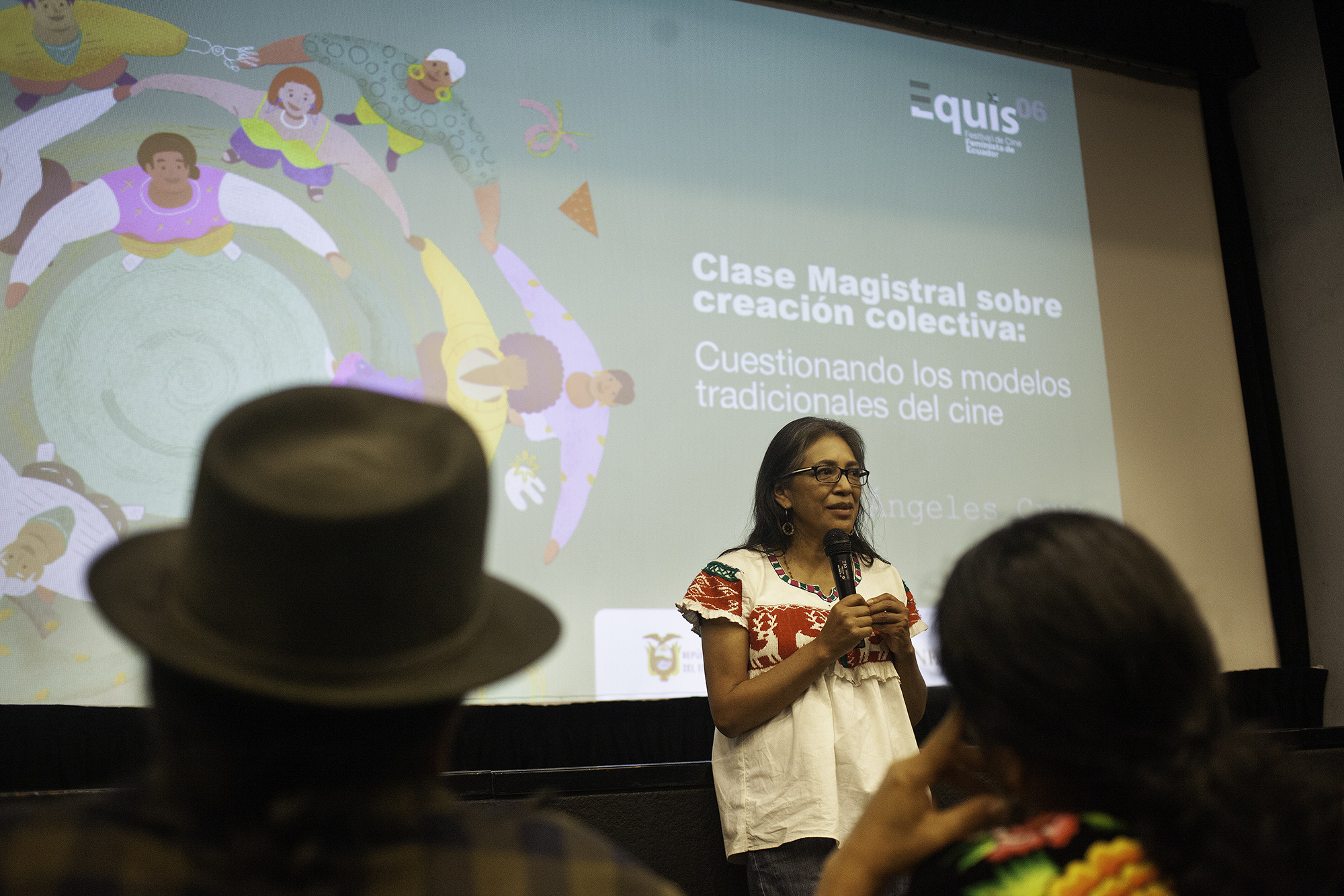
EQUIS - Ecuador’s Feminist Film Festival
Quito, Ecuador | 12 - 23 November 2025
The seventh edition of EQUIS will take place in Quito, the capital of Ecuador, and in Cuenca, with screenings held across 10 satellite locations and available online (featuring 12 films nationwide). The festival will also host screenings in non-traditional venues, educational institutions, and open-air spaces. In addition to film showings, the programme includes masterclasses and a workshop. Discussions with filmmakers, human rights activists, and subject matter experts will delve into the themes explored in the films. The festival’s long-term goal is to promote equal rights and opportunities for all, aiming to reduce gender-based violence in Ecuador. The festival is expected to draw a total of approximately 4,200 visitors.
-

EmpoderArte Festival de Cine Social y Derechos Humanos
Peru | 14 November - 10 December 2025
The second edition of this social cinema and human rights film festival takes a decentralised approach to spotlight urgent social justice issues across Peru. By bringing rarely screened films to regions beyond Lima and organising cultural activities outside the capital, the festival aims to amplify marginalised voices and foster dialogue on key human rights concerns. This year’s programme features 13 screenings across four thematic strands: the Right to Migration, Women’s Rights (with an intersectional lens), Children’s Rights, and the Rights of Indigenous Peoples. The curated lineup includes 6 short films and 12 feature-length works, each offering powerful insights into the challenges and triumphs of individuals communities advocating for their rights. The festival is anticipated to attract around 1,500 visitors in total.
-
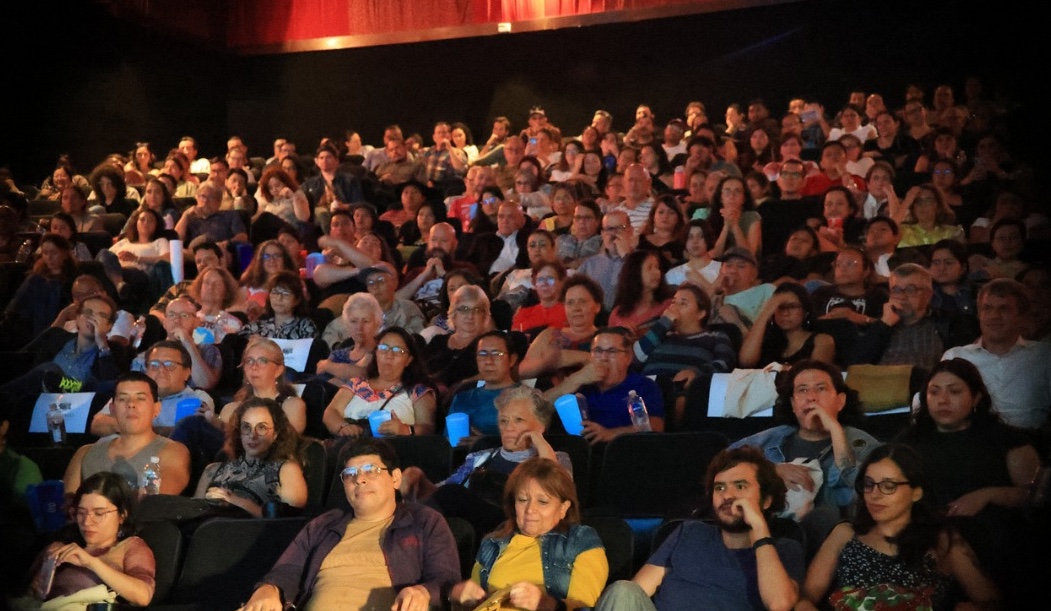
Muestra de Cine Internacional Memoria Verdad Justicia
Guatemala | November - December 2025
Following the 15th edition of the Human Rights Film Festival in Guatemala, held in April and May, the festival is expanding its reach by focusing on youth prisons and rehabilitation centers. In response to the renewed sense of hope brought by the new government, the organisers plan to visit approximately 12 of these institutions. There, they will screen films and host discussions for young people who typically have little to no access to such cultural and educational opportunities. The initiative is anticipated to attract around 2,400 visitors in total.
-
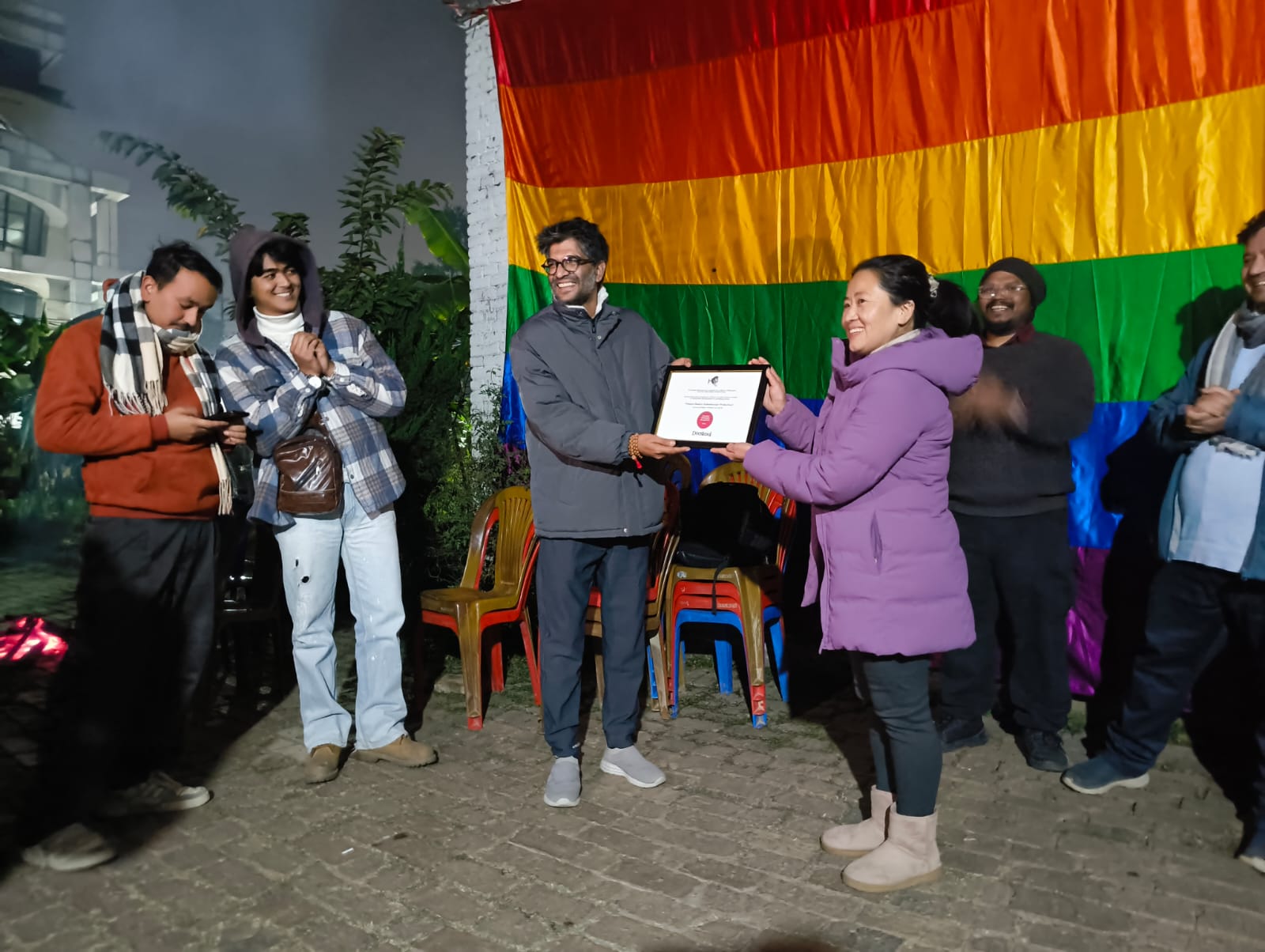
Queer Film Festival Kathmandu
Kathmandu, Nepal | 5 - 8 December 2025
The second edition of this Queer Film Festival in Kathmandu, Nepal, celebrates LGBTQIA+ experiences through a vibrant in-person event held across two main venues and three satellite locations. As a lead-up, a trial online festival is being launched to broaden access and engagement. The programme features 50 short and feature-length films, alongside two panel discussions and a participatory video workshop. The festival is expected to draw a total of approximately 3,000 visitors.
-
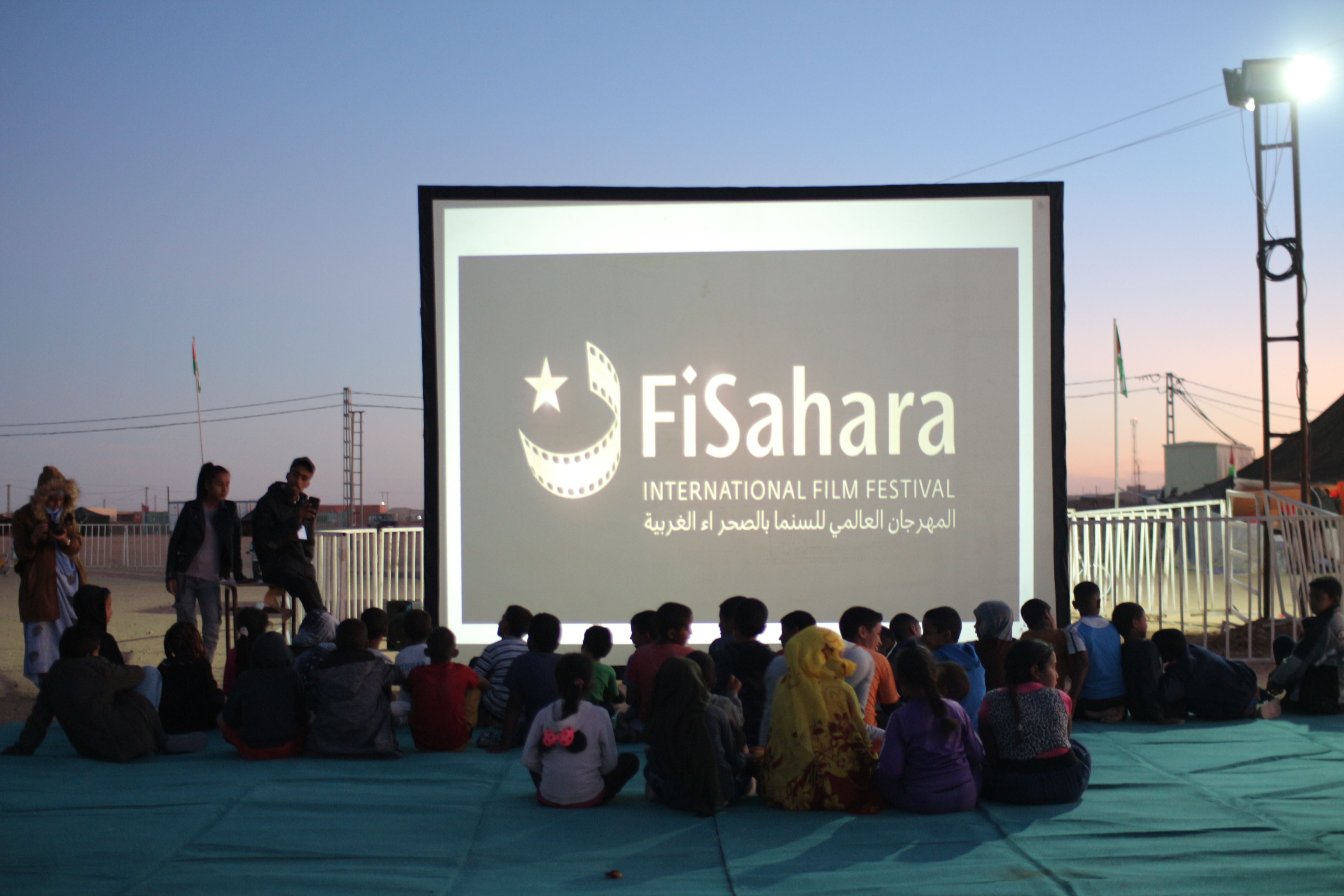
FiSahara Film Festival
Sahrawi refugee camps, Algeria | 27 April - 3 May 2026
The 19th edition of the FiSahara Film Festival, with the theme "Walking to Our Land: Film as Advocacy for the Right of Return," will take place in Spring 2026 in the Sahrawi refugee camps of southwest Algeria. Held in one of the camps, home to displaced Sahrawis for over 50 years, the festival serves as a rare cultural window to the world for many refugees. The upcoming edition centers on the theme "They Will Not Pass (No Pasarán)," drawing parallels with ongoing struggles for justice and self-determination in places like Palestine, Brazil, and the Chagos Islands. Alongside film screenings, the programme features Q&A sessions, in-depth panel discussions, a cultural village, and hands-on workshops, creating a dynamic space for resistance, reflection, and solidarity. The festival is expected to draw a total of approximately 7,000 visitors.
